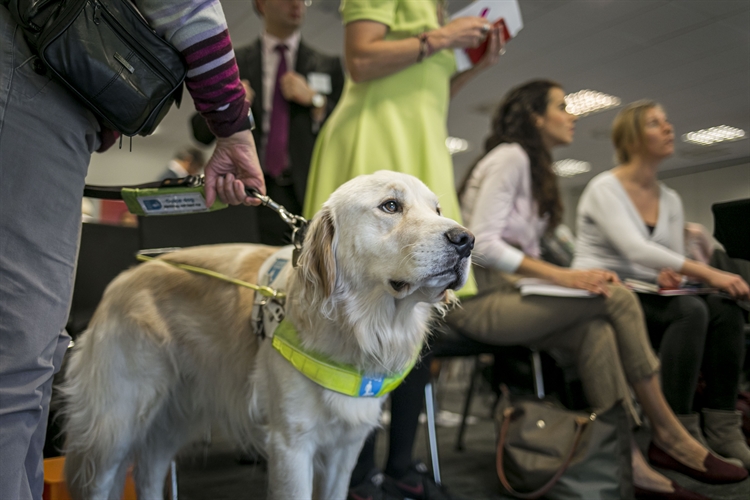Wed 29 Jan 2020

Earlier this year, two enlightening reports on disability at work were released; ‘Disability Confidence: The business leadership imperative’ from the Valuable 500 and EY, and the House of Commons Library’s briefing paper, ‘People with disabilities in employment’. The findings draw clear conclusions: disability confidence requires vision and courage, and organisations stand to gain much from decisive action.
There are compelling reasons, both moral and commercial, for prioritising disability confidence and inclusivity in organisations, alongside a significant need for progress. A marked gap between awareness and action is apparent, however. The Valuable 500’s 'Disability Confidence' report bears testament to this tension. The findings outline not only the degree to which senior leaders fail to prioritise disability-inclusivity on their leadership agendas, but also the business benefits associated with disability confidence.
39% of respondents reported having a relative with a disability and 24% were aware of a workplace peer with a disability. Respondents also reported that disability confidence, once realised, stands to offer remarkable benefits. These included stronger business reputation and a broader market reach, as well as improved talent attraction and retention, and increased organisational productivity. Despite this, 56% of the respondents conceded that disability rarely or never came up on their leadership agenda.
The statistics in the House of Commons Library’s briefing paper, ‘People with disabilities in employment’, reflect this. The report reveals a 28.6% disability employment gap in 2019, – a considerable figure. There has, however, been positive improvement in the employment of people with disabilities in recent years. Since 2013, the number of people with disabilities in employment has increased at a faster rate than for those without a disability: 10.5% and 9% rises for women and men with a disability, respectively, compared with 5.1% and 3.2% increases for women and men without disabilities.
If there is a lesson to be learned from these figures, it is that decisive action can create significant positive change. In 2017, the Government published a ten-year plan to increase the number of people with disabilities in the workforce by one million. This move was complemented by their ‘Work and Health’ and ‘Access to Work’ programmes. The launch of the Department for Work and Pensions’ Disability Confident Scheme in 2016 was another positive and successful measure, and has yielded considerable results. Created with the aim of providing businesses with support, guidance and recognition when making disability-friendly adaptations, the scheme boasted 5,000 registrations within a year. By December 2019, the numbers of participating organisations totalled 15,560.
Misperception and lack of awareness are often the key barriers to enabling people with a disability to achieve their full potential. Necessary adjustments are often inexpensive and uncomplicated, and can benefit the workforce as a whole. Steps such as increasing awareness and confidence in communication and language usage, amending recruitment and induction processes, supporting and educating managers and fostering greater awareness of common workplace adjustments can allow for substantial and meaningful progress. In summary, in order to become confident in supporting staff with disability, it is necessary that employers are first and foremost informed, aware and approachable.
A common theme which researchers found in the Valuable 500 and EY’s recent report was that disability confidence ‘requires vision and courage’. By engaging with the issue and deciding to make constructive change, it is possible to secure notable benefits for staff and organisations alike.
We are looking forward to welcoming speakers including Loraine Martins, Director of Diversity and Inclusion atNetwork Rail, Diane Lightfoot, Chief Executive Officer of the Business Disability Forum, and Fazilet Hadi, Head of Policy at Disability Rights UK to our ‘Managing Disability in the Workplace’ event on November 18th.
At this event, employers, HR managers and line managers will have the opportunity to learn about how to make disability inclusivity a reality in their workplaces and map a path to progress.
Find out more and register your place here.
View all news